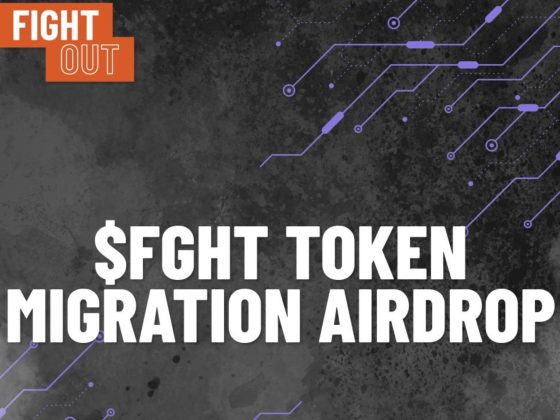The South Korean crypto exchange Upbit is facing scrutiny from a lawmaker concerned that it is turning into a “monopoly.”
According to Newsis, MP Min Byeong-deok, a member of the National Assembly’s Political Affairs Committee and a member of the Democratic Party, is also concerned about the market dominance of Upbit’s banking partner K Bank.
Is South Korean Crypto Exchange Upbit a ‘Monopoly?’
Min noted that Upbit accounts for some 60% of South Korea’s total trading volumes as of July.
This represents a relatively sharp decline from a figure of over 80%, which it reached in October last year.
However, despite the drop of about 20% in market share, Min and others are still concerned about “monopolization” in the domestic market.
K Bank partners exclusively with Upbit, and dwarfs all other banks involved in crypto exchange-related business.
Data compiled by Min’s office shows that K Bank’s share of the crypto sector stood at 76.87% last year.
In 2022, the same bank cornered almost 69% of the market. In 2021, just under 73% of crypto-related banking transactions went through K Bank.
Trading volumes on the Upbit crypto exchange over the past 12 months. (Source: CoinGecko)By contrast, the commercial banking giant Nonghyup (NH) went from a market share of 95% in 2020 to a relatively paltry 18.51% last year.
K Bank’s Upbit partnership has proven extremely successful. Its neobanking platform allows customers to sign up for accounts online.
During the coronavirus pandemic, this turbo-charged new account creation on both Upbit and K Bank.
K Bank’s neobanking rival Kakao Bank has tried to redress this by partnering with the Coinone crypto exchange.
However, the data shows that Coinone and Kakao Bank only accounted for about 3% of the domestic market last year.
The statistics further show that almost half of K Bank’s customers have crypto exchange-linked accounts. Min said:
“The domestic virtual asset trading market is ranked in the top 10 in the world. But we have a unique phenomenon whereby a certain company continues to monopolize the sector.”
South Korea’s foreign exchange market will operate until 2 a.m. from Monday, while its crypto market is to enter a new phase with the enactment of the virtual asset user protection law this month, coming into place in the latter half of this year.https://t.co/Zuk6c7Ekco
— The Korea Herald 코리아헤럴드 (@TheKoreaHerald) July 1, 2024
Lawmaker ‘Seeking Expert Opinion’
Min has previously taken aim at Upbit, criticizing what he called “opaque” token delisting procedures.
The lawmaker said he was seeking “expert opinions” on whether parliamentarians need to revise the Virtual Asset User Protection Act.
Min says politicians may “require exchanges to notify” customers about their “listing schedules at least one month in advance of making changes.”
The lawmaker has previously made commitments to “upgrade” the domestic crypto market. He has backed plans to approve spot Bitcoin ETFs.
The Democratic Party, which won a landslide victory in this year’s legislative elections, has also pledged to push for spot Bitcoin ETF approval.
Min is running in the Democratic Party’s primaries for the position of Gyeonggi Province Chairman primary.
He has also expressed a willingness to “develop” the crypto industry, and build more “investor protection” measures into South Korean law.
A K Bank office in Seoul, South Korea. (Source: Korea Business News/YouTube)Not The First Time Upbit, Dunamu Have Faced Monopoly Talk
This is not the first time Upbit and its operator Dunamu have faced monopoly-related scrutiny from the South Korean authorities.
In 2022, lawmakers and the Fair Trade Commission (FTC) said they were “looking into” Upbit and the wider issue of crypto exchange monopolies.
FTC guidelines note that it classifies any company with a market share of over 50% as a “monopoly.”
South Korean lawmakers have previously launched a range of measures aimed at preventing the growth of monopolies.
These include the Monopoly Regulation and Fair Trade Act, which places regulations on companies with assets worth some $4 billion.
ICYMI: Korea’s Fair Trade Commission reportedly launched an on-site inspection into Coupang last month on allegations that the online platform used dark patterns to raise the prices of, and keep users subscribed to, its paid membership service. https://t.co/Y1cWGh2iOQ
— The Korea JoongAng Daily (@JoongAngDaily) June 17, 2024
A Crypto ‘Conglomerate’
The head of the regulatory Financial Services Commission has also previously promised to scrutinize concerns about Upbit’s “monopoly” status.
In May 2022, the FTC designated Upbit as the domestic crypto sector’s first official “conglomerate.”
This designation stops conglomerate-size companies from making equity investments or loan guarantees with their affiliate firms.
The post South Korean Crypto Exchange Upbit the Subject of Lawmaker’s ‘Monopoly’ Scrutiny appeared first on Cryptonews.


